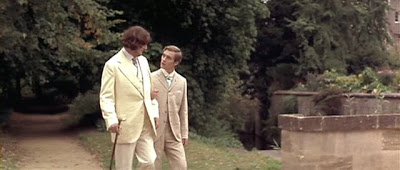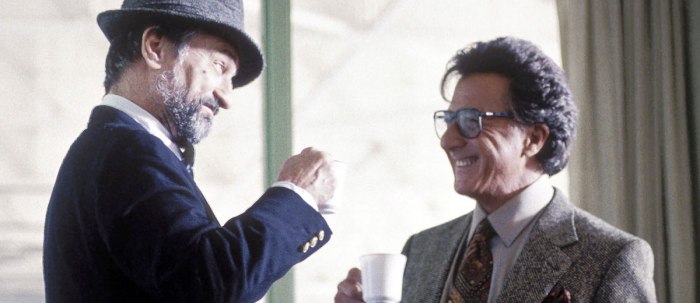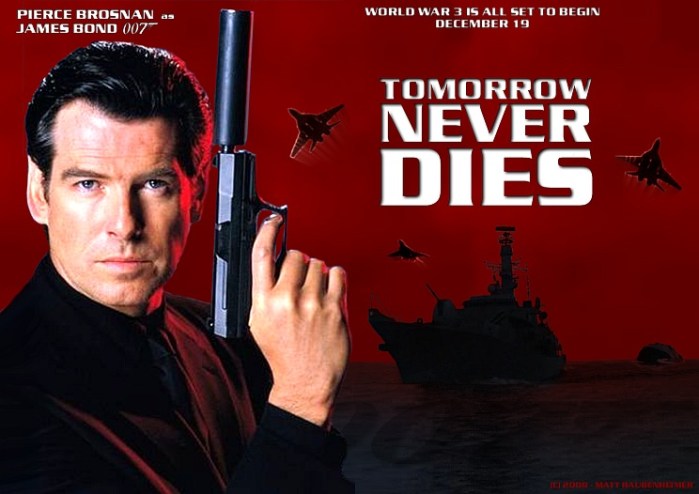
PRINCESS MONONOKE, 1997
Movie Reviews
Directed by Hayao Miyazaki
Voices by: Yôji Matsuda, Yuriko Ishida
Review by Amish Mulmi
SYNOPSIS:
On a journey to find the cure for a Tatarigami’s curse, Ashitaka finds himself in the middle of a war between the forest and Tataraba, a mining colony. In this quest he also meets San, the Mononoke Hime.
REVIEW:
Princess Mononoke (1997) is indeed a very deceptive film. It may be an animation, but that does not mean it’s a children’s film. Its complexities and multiple themes layered within mean that it is very different from the Disney-esque animations that children are rather fonder of. It begins in an idyllic rural setting, but soon jumps into a battle between forest-gods and humans. A decapitation—probably a first for a Hayao Miyazaki film—later, it engulfs the audience into a debate between development and sustainability, greed and satisfaction, and war versus pacifism.
Japan’s highest grossing film until Titanic overtook it, Mononoke, a Studio Ghibli production, is a testament to the power of animated films and their visual capabilities that allow them to capture elements which are impossible to otherwise capture in a live-action film. It seeks to answer the eternal questions pertaining to human greed and relationships, society’s evolution and civilization’s progress. It seeks to leave the audience enraptured in its visual detail, yet lets them question the themes of the film by themselves.
The film begins in a rustic village, where Ashitaka battles a demon that threatens his village. But, it turns out—the demon is actually a forest god, Nago, corrupted into hatred by human intervention. Ashitaka is cursed by the god’s ailment, and he leaves his village to seek a cure before the hatred engulfs him completely. He meets a monk, Jigo, who informs him of a forest deep into the west, where gods and spirits are still alive.
This particular forest borders an upcoming mining town called Irontown, and is ruled by a very ambiguous Lady Iboshi. The town’s economy is based around the extraction of iron ore from the surrounding mountains, and the human’s devastation of the forests causes the direct intervention of the forest gods, and a human girl called San, who has been raised by the Wolf-Goddess Nara.
Ashitaka is drawn into the battle between San and Iboshi—he realizes he is attracted towards San, and is repulsed by Irontown’s wanton destruction of virgin forests. But, the lepers and the prostitutes that Iboshi has taken under her wing assure him the lady isn’t an evil person, and only has the good of the town in her mind.
However, Ashitaka is gravely injured while saving San, who takes him to the Forest Spirit. The spirit, a deer-shaped creature that has the power to give or take life, heals Ashitaka, but does not lift the curse. San cares for her human benefactor, viewing him with both fascination and revulsion, as he represents a race she has come to hate, despite her being a part of it.
Soon after, as Irontown’s exploitation continues, the boar-god Ikkoto arrives with his warrior boars, who have decided to attack Irontown and take back the forest. However, the humans are aware of their plan—made aware by Jigo who seeks the Forest Spirit’s head for the Emperor, as it is believed to bring immortality. Irontown lays a trap for the boars, blasting them with their newly made rifles and grenades, and the boar army is annihilated. However, behind their backs, the Emperor has laid siege to Irontown, where their women defend the town against marauding samurais. Ashitaka is asked to take a message to Iboshi.
Ikkoto, however, survives and is led towards the Forest Spirit’s pool by San. But he has been poisoned by the same hatred that engulfed Nago—and his hatred begins to overcome San, who is saved by Nara. The Forest Spirit grants both Nara and Ikkoto a peaceful death for all their tribulations, and as he is transforming into the Night-Walker, a sort of a mythical kirin beast, Iboshi shoots his head off.
The Forest Spirit now becomes an all-encompassing blackness that brings death and barrenness to anything it touches, and destroys Irontown completely, including the foundry that was the key to its wealth. San and Ashitaka seek out the Spirit’s head, and upon reuniting it with the headless void, all the land which had turned barren burst out in a kaleidoscope of life and beings. Iboshi realizes her mistakes, and though she loses a hand, vows to rebuild Irontown in a much better way. Ashitaka, cured of his curse, pledges that he will never be very far away from San, as he will help in rebuilding the town.
At first glance, Mononoke seems to be a fantasy love story between San and Ashitaka; however, at its core, it includes diverse themes within itself—an anti-war sentiment, development at the cost of environment, sociological statements such as feminism, gender bias and discrimination and the idea of living at peace with nature. Miyazaki is famous for his environmentalism—this movie is a continuation of the themes explored in My Neighbour Totoro and Nausicaa of the Valley of the Winds in this respect, and explored further in his Academy Award-winning Spirited Away. Only, he brings it to the forefront over here, explaining the cause behind the displeasure of the forest spirits—being the reckless and wanton destruction of nature for the pursuit of human development. The eternal debate, prevalent even today among political and social commentators, of development versus sustainability is brought to the pedestal, and Miyazaki, in this film, provides a very different solution that should please conservationists around the world—stop the unjustifiable destruction of virgin forests, probably alluding to the vast deforestations that have been going on across the planet.
Mononoke is also a very anti-war film, in that it tries to seek reason in war through the character of Ashitaka, who questions the motives behind both the boars’ and Iboshi’s decisions to fight. He is indeed a pacifist if there ever was one, and seeks to explain the futility of the fighting, though unsuccessfully. He is not a coward—but wants to impress upon both parties the outcome of all the hatred: a continuous cycle of further hate and war-mongering.
These two major themes aside, Mononoke is also an exploration into sociological relationships, especially into the ideas of gender bias, discrimination and social structures. Irontown’s wealth has been made possible by its women, who were prostitutes earlier until rescued by Lady Iboshi, who herself comes across as a supremely ambiguous character. As the lepers tell Ashitaka, “she’s the only one who saw us as human beings. The world fears us…but she is the only one who took us in and washed our rotting flesh and bandaged us…” Yet, she is a ruthless expansionist, willing to go to any lengths to ensure the survival of Irontown.
Lady Iboshi’s proclaimed nemesis, San, is herself an individual driven by a singular sense of direction—to kill Iboshi and halt the destruction of the forest. And while the other forest gods are all driven by their hatred towards the humans in varying degrees, it is remarkable that the most powerful god, the Forest Spirit himself does not bear any such acrimony and even forgives the humans despite them shooting his head off.
Mononoke, thus, is a tale that speaks of volumes about reconciliation and the power of pacifism. Ashitaka is singled out as a champion, but the Forest Spirit, along with the tree-spirits Kodamas are themselves unmindful of the hatred that fosters around them, and perceive their lives to be an intricate part of the surrounding environment.
Miyazaki once again blurs the line between fantasy and reality in this film, which, despite having overt fantasy elements, never really ventures into becoming a fairy tale. Its protagonists are very real, and the presence of paranormal elements in the chain of events does not amaze the viewer at all; rather the spirits and gods contrast with the human ways, and allow the audience to juxtapose the two races and judge them accordingly.
The English translation does the filmmaker a disfavor by toning down the language and Japanese terms, so as to make the film more accessible to global audiences. However, it could be argued that without the translation, millions of viewers would not have been able to watch this fantastic film. Atleast, the English version has not been mutilated, like Miyazaki’s earlier films. Maybe it was the katana that he sent with the message ‘No cuts’ when Disney, Studio Ghibli’s American partners, suggested a few edits to make the film more child-friendly which did the trick. Or it could be the fact that acclaimed writer Neil Gaiman adapted the story for English audiences. Whatever the reason, Mononoke is truly what landmark cinema stands for—and long after the audience exits the movie theater, they will ponder over the questions that the film raises.

 WILDE, 1997
WILDE, 1997


 GOLDENEYE, 1997
GOLDENEYE, 1997
 TO DIE FOR TANO, 1997
TO DIE FOR TANO, 1997





 PRIVATE PARTS, 1997
PRIVATE PARTS, 1997

